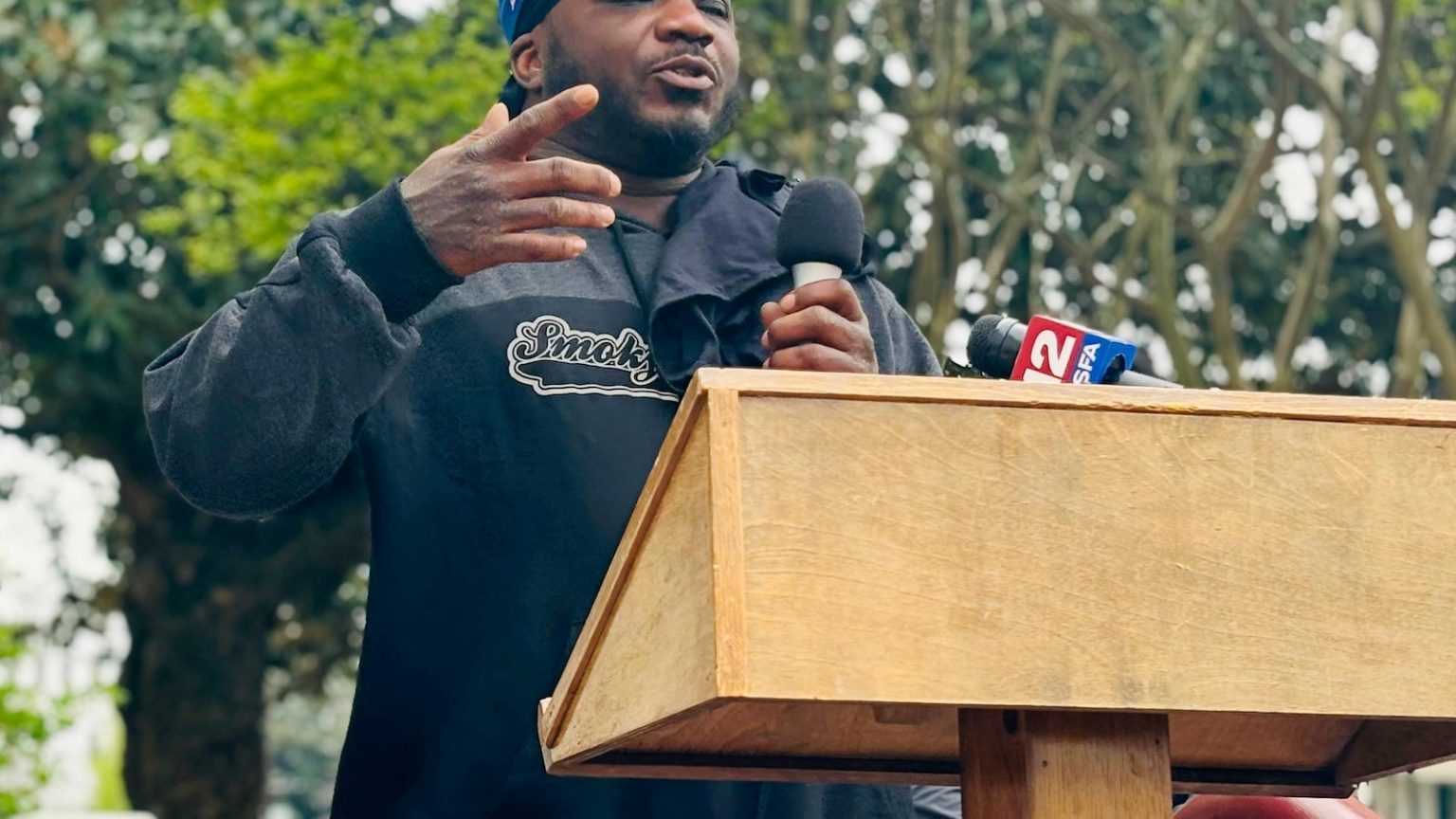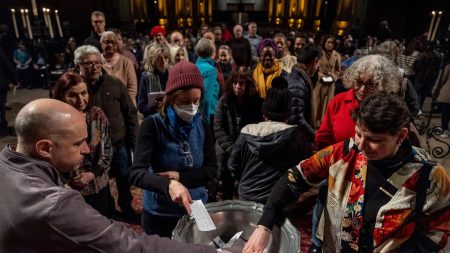The Alabama Supreme Court Clears the Way for a Controversial Execution
The Alabama Supreme Court has given the green light for the execution of Robin “Rocky” Myers, a man convicted of murdering his neighbor, Ludie Mae Tucker, in 1991. Despite a juror from his original trial expressing doubts about his guilt, the court has authorized Myers’ execution by nitrogen gas, with the exact date to be determined by the governor’s office. This decision has reignited debate over the fairness of the death penalty, particularly in cases where doubts about guilt persist. Myers’ supporters argue that his case is a prime example of a flawed justice system, where procedural failures and a lack of physical evidence have led to a potentially innocent man facing execution.
A Murder, a Trial, and Lingering Doubts
Ludie Mae Tucker, a 69-year-old woman, was found stabbed to death in her Decatur home in October 1991. Her cousin, who survived the attack, testified that a man rang the doorbell in the middle of the night, asked to use the telephone, and attacked Tucker after she screamed. Tucker herself told police before her death that her attacker was a short, stocky Black man, but she could not identify him. Rocky Myers, who lived across the street with his family, was ultimately charged with her murder. His defense team now argues that there is no physical evidence linking him to the crime and that the prosecution’s case relied heavily on circumstantial evidence. Perhaps most strikingly, one of the jurors from his 1994 trial, Mae Puckett, has come forward to say she believes Myers is innocent. “They never proved he did it. They never proved he was in the house,” Puckett said in an interview with The Associated Press.
A Juror’s Cry for Clemency and the System’s Failure
Mae Puckett, the juror who served during Myers’ trial, has been vocal about her doubts regarding his guilt. She and a few other jurors were hesitant to convict Myers, fearing that the prosecution had not provided sufficient evidence. However, Puckett has explained that she and other doubtful jurors agreed to a compromise: they would find Myers guilty but recommend life in prison instead of the death penalty. The jury ultimately voted 9-3 in favor of life imprisonment. Yet, under Alabama’s now-abandoned system, the judge in the case had the authority to override the jury’s recommendation and impose the death sentence, which he did. Puckett has since become an advocate for Myers, urging Governor Kay Ivey to grant him clemency and commute his sentence to life in prison. “The deck was stacked against him before it ever started,” Puckett said. “It was just an awful, awful thing, and it still is.”
A Legacy of Legal Failures and Unanswered Questions
Myers’ case is riddled with legal missteps and procedural failures that have undermined his ability to challenge his conviction. One of the most glaring issues is the role of his former lawyer, Earle Schwarz, who represented Myers during his initial appeals. Schwarz, a Tennessee-based attorney who volunteered to take on Myers’ case through a national pro bono network, reportedly abandoned the case without informing his client. Myers, who has a limited education and reads at a fourth-grade level, was unaware that Schwarz had stopped working on his case. As a result, he missed a critical deadline in 2003 to file a federal habeas corpus petition, a mistake that the 11th Circuit Court of Appeals later described as “inexcusable abandonment.” While the court acknowledged Schwarz’s negligence, it ultimately placed some blame on Myers, suggesting he should have taken more initiative to monitor his case.
Perhaps even more troubling is the fact that a key prosecution witness has since recanted their testimony. Additionally, Myers’ lawyers argue that his intellectual disability should have disqualified him from facing the death penalty under a U.S. Supreme Court ruling that bars the execution of intellectually disabled individuals. Myers’ IQ tests have shown scores ranging from 64 to 73, which his attorneys contend are well below the threshold for intellectual disability. However, the state has countered by pointing to a 2006 psychological evaluation that placed his IQ at 84, which would make him eligible for execution. Myers’ legal team has dismissed this score as an outlier, but the state has maintained its position.
A Last-Ditch Plea for Clemency
With the Alabama Supreme Court’s ruling clearing the way for Myers’ execution, his only remaining hope is clemency from Governor Kay Ivey. Kacey Keeton, Myers’ current lawyer, has argued that clemency serves as a failsafe for cases where the justice system has failed. “If the system fails—as it has repeatedly failed Mr. Myers—clemency is there to save his life,” Keeton said. She emphasized that even those who support the death penalty should find Myers’ case troubling, given the lack of physical evidence, the questionable witness testimony, and the doubts expressed by a juror from his original trial. Keeton also pointed to the judge’s decision to override the jury’s recommendation of life imprisonment as further evidence of systemic failure.
Myers’ supporters have joined his legal team in calling for clemency, arguing that the state should not execute someone when there are lingering questions about their guilt. Myers’ son, LeAndrew Hood, who was just 11 years old when Tucker was killed, has also spoken out, recalling the close relationship his family had with the victim. “She knew us,” Hood said. “She had enough breath to say it was a short, stocky Black man. If it was my father, all she had to do was say it was the man across the street.” Hood’s words underscore the emotional weight of the case and the deep-seated concerns about whether justice has been served.
The Bigger Picture: Justice, Mercy, and the Death Penalty
Rocky Myers’ case has become a flashpoint in the broader debate over the death penalty and its application in the United States. Advocates for abolition argue that cases like Myers’ illustrate the inherent risks of a system that can lead to the execution of innocent people. They point to the lack of physical evidence, the recanted testimony, and the doubts expressed by a juror as clear signs that Myers’ guilt is far from certain. At the same time, supporters of the death penalty argue that the system is designed to handle such complexities and that Myers has had multiple opportunities to challenge his conviction through the courts.
Yet, even for those who support capital punishment, Myers’ case raises troubling questions. If the system failed at multiple points—whether through inadequate legal representation, a judge’s override of a jury’s recommendation, or missed deadlines for appeals—can we truly say that justice has been served? Kacey Keeton, Myers’ lawyer, has urged both supporters and opponents of the death penalty to consider the broader implications of executing someone in such circumstances. “For those who support the death penalty, Rocky Myers’ case should give you pause,” she said. “I believe, without reservation, that Rocky Myers did not commit a murder, but you don’t have to agree with me on that to believe that the death penalty is not appropriate in this case.”
As the clock ticks down on Rocky Myers’ life, the focus now shifts to Governor Kay Ivey and her decision on whether to grant clemency. While the legal avenues for Myers have largely been exhausted, the moral and ethical questions surrounding his case remain unresolved. Whether Myers is guilty or innocent, his story serves as a stark reminder of the high stakes and human cost of the death penalty. In the end, it is a story about the fallibility of the justice system, the importance of mercy, and the enduring debate over whether the death penalty can ever truly be just.















